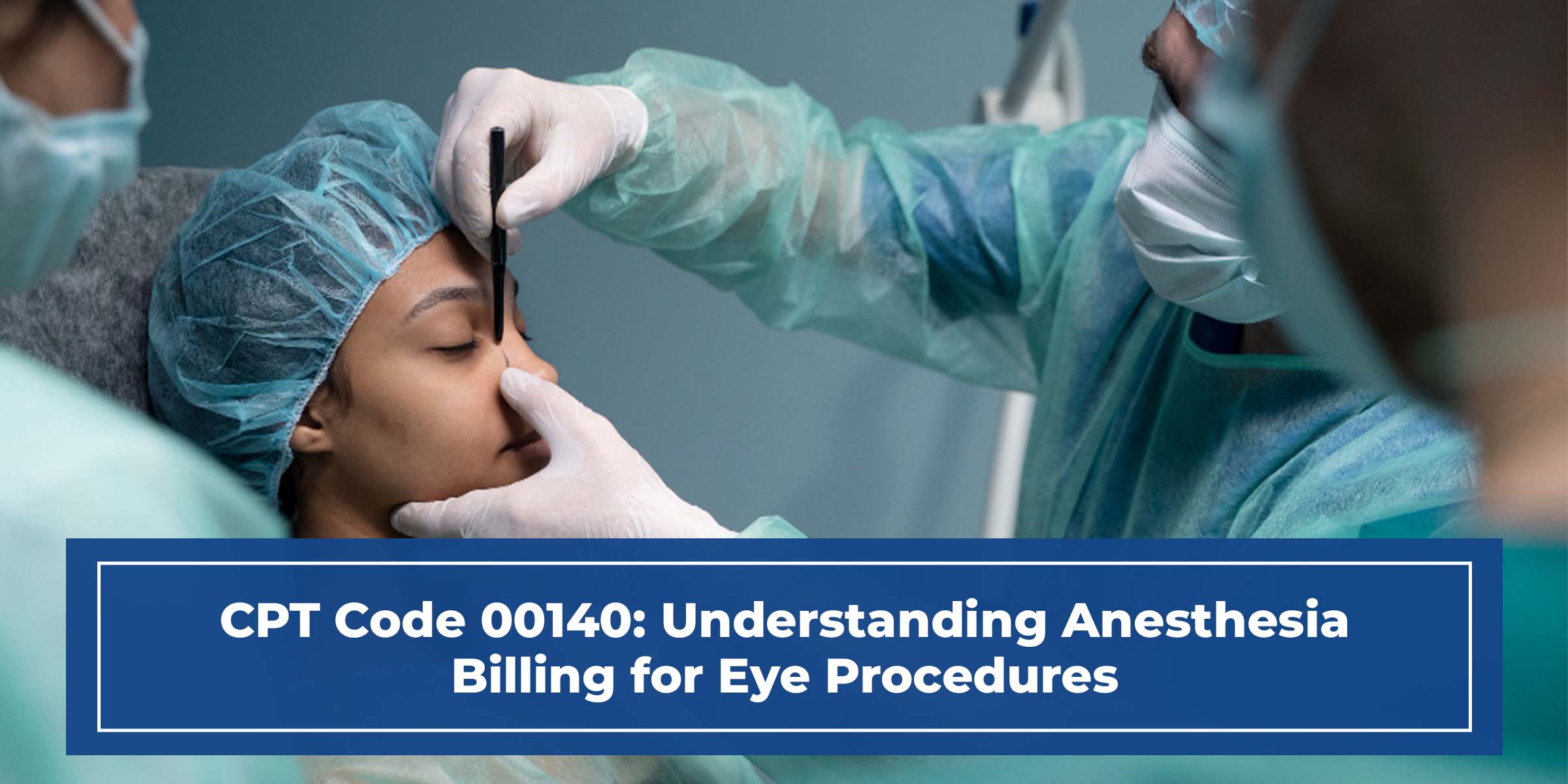According to the OIG, Medicare rejected more than $250 million in claims in 2023 due to services that lacked medical necessity or proper documentation. In many of these situations, providers failed to deliver a proper Advance Beneficiary Notice (ABN), which is needed when charging Medicare patients for treatments that are likely to be refused. Without a correctly signed ABN, providers cannot legally transfer payments to the patient, resulting in inaccessible income and increased compliance risk.
An ABN is a necessary document used by Original Medicare (Part B) to alert patients of probable non-coverage and payment responsibilities. It protects physicians from claim denials and ensures that consumers make informed choices.
This blog discusses when an ABN is required, what it must include, how to issue it correctly, and what happens if it is not used. Understanding ABN standards is critical for anybody involved in Medicare billing to prevent denials and remain compliant.
What is an Advance Beneficiary Notice of Non-Coverage (ABN)?
Authentic Medicare providers use ABNs when a service is likely to be refused. They assist with financial responsibility and compliance.
ABN Meaning in Medical Billing
An Advance Beneficiary Notice (ABN) is a legal document required by the Centers for Medicare and Medicaid Services. It is administered to Original Medicare (Part B) patients when a healthcare professional determines Medicare will not fund a treatment or item. The notification provides patients with the option to proceed and accept financial responsibility if Medicare refuses payment.
ABNs do not apply to Medicare Advantage plans. It cannot be provided or retrospectively. The patient must get it before the service may be conducted. The paper contains a service description, the rationale for probable refusal, an estimated cost, and choices for the patient to determine how to continue.
Using the ABN properly transfers financial obligation to the patient. Without it, if Medicare refuses the claim, the provider has financial responsibility. This makes the ABN a valuable tool for ensuring Medicare compliance, protecting revenue, and facilitating patient communication.
When Is an ABN Used?
An ABN is used when a practitioner suspects that Medicare may not pay for a given treatment because of the following:
- The service is not medically essential according to CMS rules.
- The service is performed too often.
- The service is experimental, preventative, or cosmetic.
Examples include physical therapy sessions that exceed Medicare’s coverage limit, routine lab tests without a meaningful diagnostic code, and equipment designed for comfort rather than usefulness.
According to CMS Chapter 30, Section 50, an ABN is required in certain cases to notify the patient and shift obligation. It should not be utilized in an emergency or as a general message. When submitting a claim with an ABN, providers must additionally utilize modifier GA or GY.
Correct use of the ABN protects both the physician and the patient, minimizes billing disputes, and promotes accurate Medicare claim submissions.
Why Is the ABN Important to the Patient?
The Advance Beneficiary Notice (ABN) protects patients from unexpected healthcare costs and supports informed decisions. It also complies with Medicare billing regulations.
Clarifies Financial Responsibility
An advance beneficiary notification (ABN) is a document that the Medicare patient signs when a service is likely to be refused. It provides an estimate of out-of-pocket costs when needed. This ensures that the patient is aware of their responsibilities before the service is provided.
If the practitioner fails to issue an ABN on time, the patient may not be legally obligated to pay, even if Medicare rejects the claim. In these circumstances, the supplier bears the monetary loss. Patients who sign the ABN realize the possibility and agree to accept responsibility. This increases clarity, reduces billing conflicts, and enhances billing transparency.
The ABN protects both parties when treatments exceed Medicare limits or are deemed unnecessary. Without it, patients may incorrectly conclude that coverage exists.
Ensures Consent Is Documented
An ABN is more than just a billing document; it is legally enforceable proof of patient consent. It demonstrates that the practitioner advised the patient of the risk of denial and recorded their decision to proceed or reject.
The form provides three patient options. One enables charging Medicare and accepts payment duties if refused. Another alternative permits the patient to pay directly, bypassing Medicare. The third option allows the patient to decline the service completely.
The advance beneficiary notification of non-coverage must be signed before the service may begin. It cannot be signed under coercion or during an emergency. If done improperly, it may be declared illegal, leaving the provider liable for the entire amount.
When Should an ABN Be Signed?
Understanding when to acquire an ABN can help you avoid billing disputes, Medicare denials, and compliance problems. This section describes where providers are required to use an ABN and when it is optional.
Required Scenarios
When a provider anticipates that Medicare is likely to refuse payment for a specific item or service covered under Original Medicare (Part B), an advance beneficiary notification of non-coverage must be sent. It must be issued before the service is provided. If an ABN is not given in certain cases, the practitioner is unable to bill the patient and must accept financial responsibility.
Common required scenarios include:
- The service isn’t considered medically essential given the patient’s condition.
- The service exceeds Medicare’s usage restrictions.
- The item or service is intended to be used for research, prevention, or cosmetic purposes.
- Prior authorization was not sought when it was necessary.
- Services are supplied despite not fulfilling Local Coverage Determinations (LCDs).
Voluntary ABNs
A private ABN can be used when a service is not covered by Medicare, under any situation. This covers services like:
- Hearing Aids
- Routine dental care.
- Personal Comfort Items
- Cosmetic surgery.
What Does an ABN Document Include?
Understanding the ABN’s documents ensures CMS compliance. Each element of the form must be completed correctly to protect the provider and inform the patient.
Required ABN Fields
Several fields on Form CMS-R-131, the advanced beneficiary notice of non-coverage, are necessary. A missing or partial portion may render the ABN invalid. If the ABN is invalid, the practitioner cannot legally recover payment from the patient if Medicare rejects the claim.
Here is a breakdown of what the ABN must include:
1. Notifier Information
- Legal name, address, and phone number of the provider or supplier providing the ABN.
- It must be displayed at the top of the form.
2. Patient Identification
- Patient’s complete name as it appears on their Medicare card.
- Internal account number is optional (no Social Security or Medicare ID required).
3. Service Description
- A product, service, or test that Medicare may not cover.
- It should be properly worded in common medical terminology that the patient understands.
4. Reason for Potential Non-Coverage
- Explain why Medicare may refuse the treatment (for example, “Medicare does not cover this test for your diagnosis”).
- Each service must have a specific cause.
5. Estimated Cost
- A reliable estimation of the patient’s probable financial responsibility.
- CMS requires that the information be sufficiently accurate.
6. Patient Options
- The patient must choose one of the three alternatives that clarify their decision.
- Request the service and authorize Medicare to be invoiced.
- Agree to get the service, but do not request billing to Medicare.
- Refuse the service completely.
7. Additional information (optional)
- Clarifying notes or additional directions.
- Other insurance concerns or provider disclaimers may apply.
8. Signature and Date
- The patient (or their legal representative) must sign and date the document.
- Before performing the service, signatures must be gathered.
Which Patient Would Most Likely Be Asked to Sign an Advance Beneficiary Notice?
Not all patients get an ABN. It is issued based on the service type rather than the patient’s profile alone.
Typical ABN Recipients
Patients with Original Medicare (Part B) who get treatments that do not meet Medicare’s coverage rules are more likely to be asked to sign an advance beneficiary notice. ABNs are not used by Medicare Advantage Plans.
Examples of typical recipients include:
- A Medicare patient undergoes therapy that Medicare does not cover, such as cosmetic operations, basic dental care, or hearing aids.
- Patients are undergoing diagnostic tests that exceed Medicare’s frequency restrictions, such as recurrent blood tests or numerous imaging scans.
- Patients receiving services without a verified medical necessity, such as preventative screenings that do not meet coverage standards.
- Individuals who desire elective treatments or devices that do not come within Medicare’s specified benefits.
- Patients who get new or experimental items may be refused due to insufficient proof or policy constraints.
Only certified Medicare providers and suppliers can issue an ABN. It must be delivered before the service, rather than during or after, and must give the patient enough time to evaluate and decide.
What Happens Next When a Medicare Patient Receives Non-Medicare Treatment?
When Medicare refuses coverage, the cost is determined by whether the ABN was correctly issued. This section describes the possible implications for both providers and patients.
Outcomes Based on ABN Use
If someone with Medicare gets non-covered therapy, the next steps depend on whether an advance beneficiary notice (ABN) was sent before the service.
There are two key scenarios:
1. ABN Was Issued and Signed Before Treatment
- The patient accepts financial responsibility for the service.
- The provider can bill the patient directly.
- Medicare denials will show on the Medicare Summary Notice (MSN).
- The patient can still submit an appeal, but payment is not assured.
2. ABN Was Not Issued When It Should Have Been
- The provider cannot collect payment from the patient.
- The supplier accepts full financial responsibility.
- Even if the patient had agreed, the failure to provide an ABN on time renders the responsibility transfer null and invalid.
- Where a complaint has been filed, the patient maintains the right to appeal.
In both cases, proper ABN usage protects the practitioner and informs the patient. CMS mandates strict compliance with ABN issuing requirements to ensure transparency, avoid incorrect billing, and protect patient rights.
Conclusion
Using an ABN appropriately ensures that physicians satisfy CMS requirements and that patients understand their potential out-of-pocket expenses. Failure to deliver on time may result in missed payment and compliance exposure. Each stage in issuing an ABN must be done precisely and in the proper order. Constant ABN guidelines help Medicare billing professionals maintain revenue and provide educated patient care.
FAQs
What is ABN in medical billing, and why is it required?
An ABN is a Medicare-required document used to notify patients when a service may not be covered. It shifts financial responsibility if signed before the service.
When should an ABN be signed?
An ABN must be signed before providing services likely to be denied by Medicare due to lack of medical necessity, frequency limits, or coverage exclusions.
Can a provider charge a Medicare patient without an ABN?
No. If an ABN is not issued in required situations, the provider assumes full financial liability and cannot bill the patient, even if the claim is denied.
Does the ABN apply to Medicare Advantage (Part C) plans?
No. ABNs are only used under Original Medicare (Part B). Medicare Advantage plans follow different denial notification processes.
What happens if an ABN is filled out incorrectly or is incomplete?
An invalid ABN voids patient responsibility. The provider may lose reimbursement and risk compliance issues under CMS audit rules.





